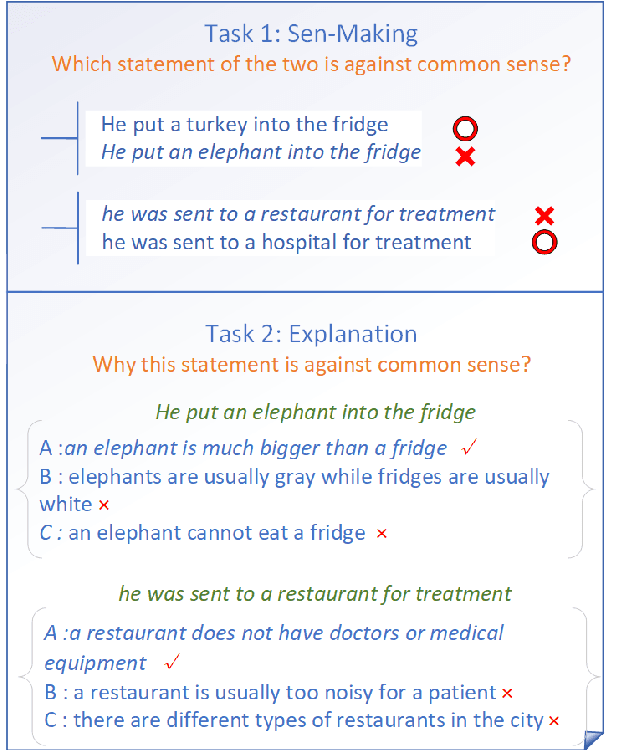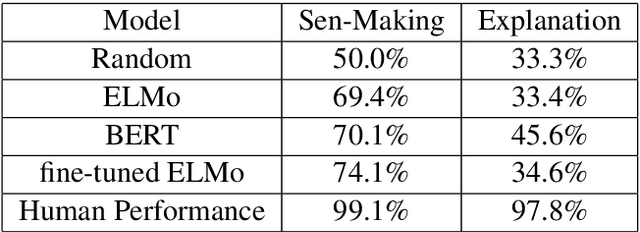Does It Make Sense? And Why? A Pilot Study for Sense Making and Explanation
Paper and Code
Jun 02, 2019


Introducing common sense to natural language understanding systems has received increasing research attention. It remains a fundamental question on how to evaluate whether a system has a sense making capability. Existing benchmarks measures commonsense knowledge indirectly and without explanation. In this paper, we release a benchmark to directly test whether a system can differentiate natural language statements that make sense from those that do not make sense. In addition, a system is asked to identify the most crucial reason why a statement does not make sense. We evaluate models trained over large-scale language modeling tasks as well as human performance, showing that there are different challenges for system sense making.
* This paper has been accepted by ACL2019
 Add to Chrome
Add to Chrome Add to Firefox
Add to Firefox Add to Edge
Add to Edge